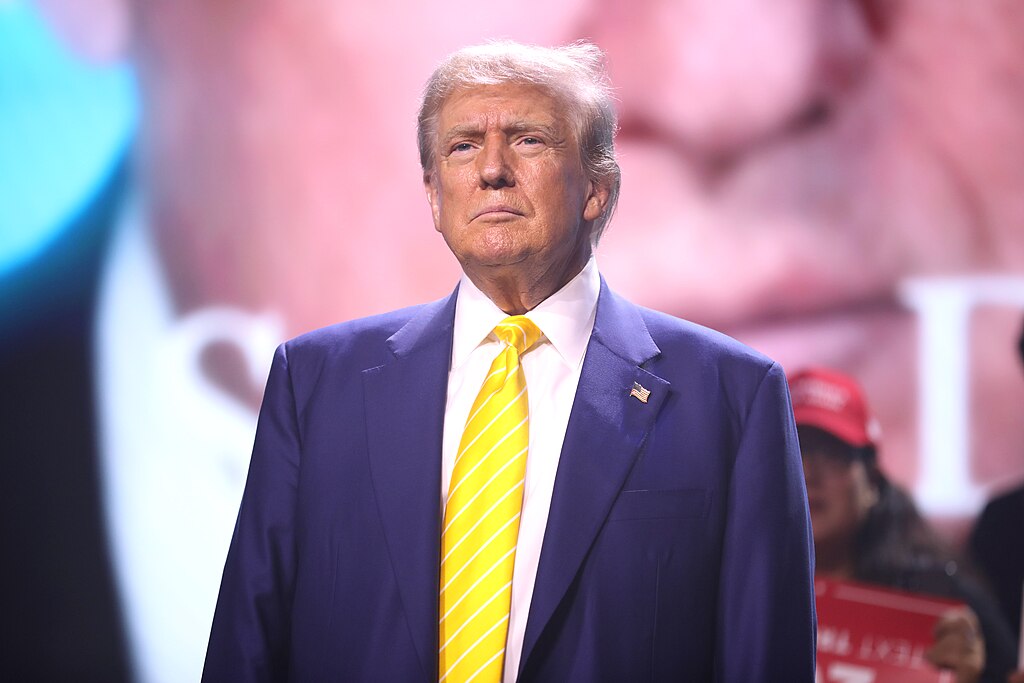In the immediate aftermath of the July 13, 2024, assassination attempt on former President Donald Trump, social media was flooded with a torrent of rumors and conspiracy theories. From claims of staged photos to allegations of an inside job, the incident quickly became a breeding ground for misinformation, reflecting the polarized political climate.
Videos and images of the incident were shared widely, with each user interpreting them through their political lens. One widely circulated TikTok video questioned the authenticity of an iconic photo showing Trump with a bloodied ear, suggesting it was staged. This speculation gained traction despite the chaotic reality of the event, as per ZMEScience.
Criticism of the Secret Service’s failure to prevent the attack was bipartisan, with figures across the political spectrum, including President Joe Biden, questioning how an armed assailant could reach an unsecured rooftop. This critique quickly morphed into more sinister theories. On social media X, an influencer posted an aerial photo questioning the security breach, hinting at an inside job.
Researchers at the University of Washington’s Center for an Informed Public noted that such collective sensemaking is a natural response to crises. People tend to spread rumors to make sense of uncertain and frightening events, often influenced by their political and cultural biases.
Three primary narratives emerged across social media in the wake of the attempt on Trump's life: accusations of the event being staged, critiques of the Secret Service often linked to Diversity, Equity, and Inclusion (DEI) initiatives, and suggestions that the shooting was an inside job.
Staged Event Theory
Among anti-Trump circles, a theory that the shooting was staged for political gain gained momentum. Some speculated that Trump’s background in World Wrestling Entertainment and reality television might have influenced him to orchestrate the incident for dramatic effect. This narrative was bolstered by entertainment professionals claiming Trump used fake blood packets.
Secret Service Failings
Both social and mainstream media saw widespread questioning of the Secret Service’s performance. Comparisons to the swift response during the 1981 attempt on President Ronald Reagan highlighted perceived shortcomings in Trump’s security. Some politicized this further, blaming DEI initiatives for allegedly reducing the Secret Service’s effectiveness by promoting unqualified agents.
Pro-Trump communities fueled another rumor that the Secret Service had denied additional security requests from Trump, a claim that has been officially denied. This narrative was amplified by recent legislative proposals suggesting the removal of Secret Service protection if Trump were convicted of a felony.
Inside Job Speculations
As critiques of the Secret Service’s performance grew, another theory suggested the shooting was an inside job. Influential figures on social media speculated that the security breach was either due to incompetence or deliberate action. Elon Musk’s retweet of a pro-Trump influencer’s post insinuating this possibility further fueled the narrative.
The Nature of Rumors
The persistence of these rumors reflects a broader social phenomenon. As the crisis recedes, rumors will likely persist, evolving as new evidence emerges. This collective sensemaking process is a natural human response driven by intense emotions and the need to understand rapidly changing situations.
In the wake of such events, it's crucial to recognize how political and social identities can be exploited to spread misinformation. Understanding these dynamics can help individuals become more resilient to false rumors and conspiracies.



 China Warns US Arms Sales to Taiwan Could Disrupt Trump’s Planned Visit
China Warns US Arms Sales to Taiwan Could Disrupt Trump’s Planned Visit  Trump Signs “America First Arms Transfer Strategy” to Prioritize U.S. Weapons Sales
Trump Signs “America First Arms Transfer Strategy” to Prioritize U.S. Weapons Sales  Nighttime Shelling Causes Serious Damage in Russia’s Belgorod Region Near Ukraine Border
Nighttime Shelling Causes Serious Damage in Russia’s Belgorod Region Near Ukraine Border  Jack Lang Resigns as Head of Arab World Institute Amid Epstein Controversy
Jack Lang Resigns as Head of Arab World Institute Amid Epstein Controversy  US Pushes Ukraine-Russia Peace Talks Before Summer Amid Escalating Attacks
US Pushes Ukraine-Russia Peace Talks Before Summer Amid Escalating Attacks  Trump Lifts 25% Tariff on Indian Goods in Strategic U.S.–India Trade and Energy Deal
Trump Lifts 25% Tariff on Indian Goods in Strategic U.S.–India Trade and Energy Deal  Missouri Judge Dismisses Lawsuit Challenging Starbucks’ Diversity and Inclusion Policies
Missouri Judge Dismisses Lawsuit Challenging Starbucks’ Diversity and Inclusion Policies  TrumpRx.gov Highlights GLP-1 Drug Discounts but Offers Limited Savings for Most Americans
TrumpRx.gov Highlights GLP-1 Drug Discounts but Offers Limited Savings for Most Americans  Trump Endorses Japan’s Sanae Takaichi Ahead of Crucial Election Amid Market and China Tensions
Trump Endorses Japan’s Sanae Takaichi Ahead of Crucial Election Amid Market and China Tensions  Trump’s Inflation Claims Clash With Voters’ Cost-of-Living Reality
Trump’s Inflation Claims Clash With Voters’ Cost-of-Living Reality  U.S. Lawmakers to Review Unredacted Jeffrey Epstein DOJ Files Starting Monday
U.S. Lawmakers to Review Unredacted Jeffrey Epstein DOJ Files Starting Monday  U.S. Announces Additional $6 Million in Humanitarian Aid to Cuba Amid Oil Sanctions and Fuel Shortages
U.S. Announces Additional $6 Million in Humanitarian Aid to Cuba Amid Oil Sanctions and Fuel Shortages  Iran–U.S. Nuclear Talks in Oman Face Major Hurdles Amid Rising Regional Tensions
Iran–U.S. Nuclear Talks in Oman Face Major Hurdles Amid Rising Regional Tensions  Ohio Man Indicted for Alleged Threat Against Vice President JD Vance, Faces Additional Federal Charges
Ohio Man Indicted for Alleged Threat Against Vice President JD Vance, Faces Additional Federal Charges  India–U.S. Interim Trade Pact Cuts Auto Tariffs but Leaves Tesla Out
India–U.S. Interim Trade Pact Cuts Auto Tariffs but Leaves Tesla Out  U.S. to Begin Paying UN Dues as Financial Crisis Spurs Push for Reforms
U.S. to Begin Paying UN Dues as Financial Crisis Spurs Push for Reforms  TrumpRx Website Launches to Offer Discounted Prescription Drugs for Cash-Paying Americans
TrumpRx Website Launches to Offer Discounted Prescription Drugs for Cash-Paying Americans 































